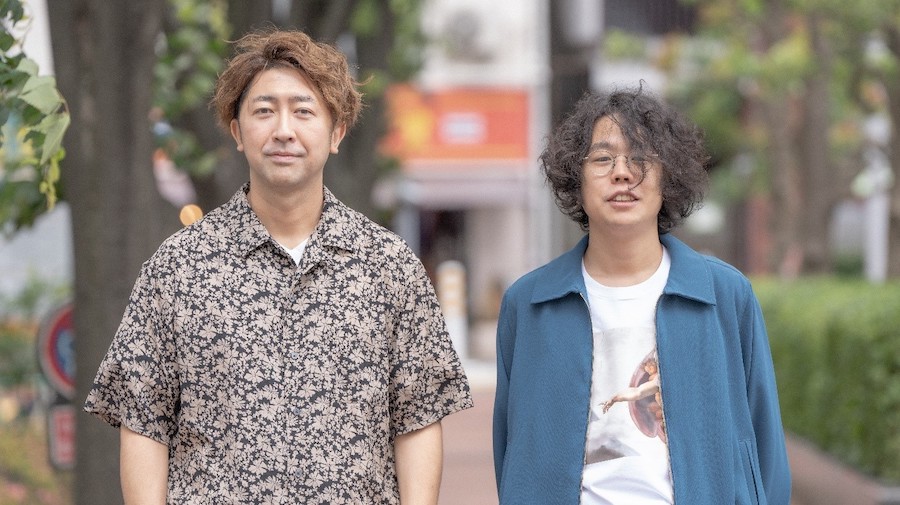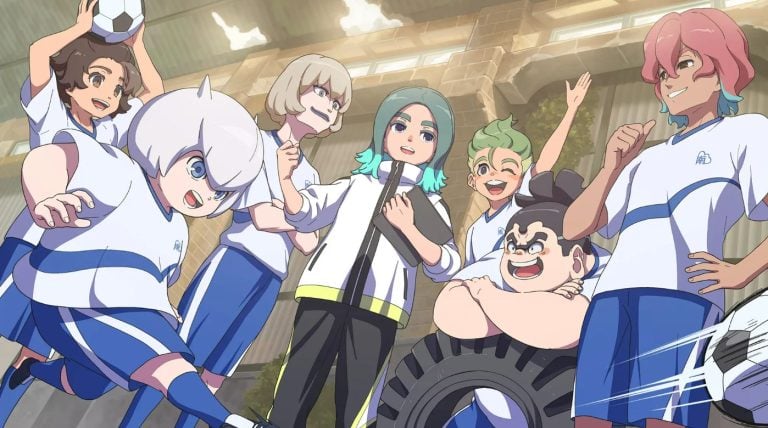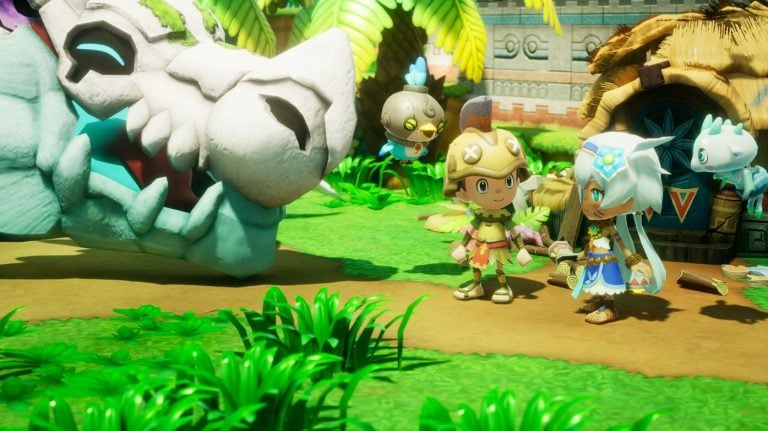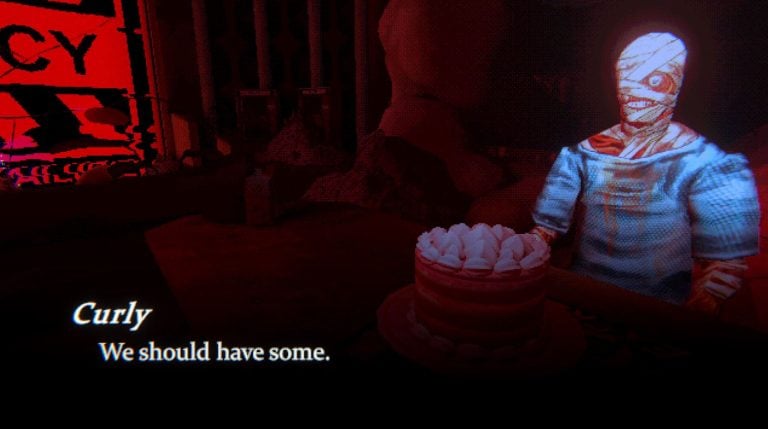Square Enix is set to release Visions of Mana this summer. The first completely new title in the Legend of Mana RPG series in 17 years is being developed by NetEase Games’ Ouka Studio. With bases in Guangzhou, China and Tokyo, Japan, Ouka is a “hybrid studio,” helmed by Tetsuya Akatsuka, who formally worked at Bandai Namco Studios for many years.
It is rare for a studio to engage in cross-country development between Japan and China. Ahead of Visions of Mana’s release, we sat down with two of Ouka Studios’ directors to find out more about how this works. Ryosuke Yoshida previously worked on combat design at Capcom, while Kenji Ozawa was a producer at Bandai Namco Entertainment. We find out why these Japanese creators chose to expand their activities to China, and what joint efforts between Japanese and Chinese developers have helped them achieve…
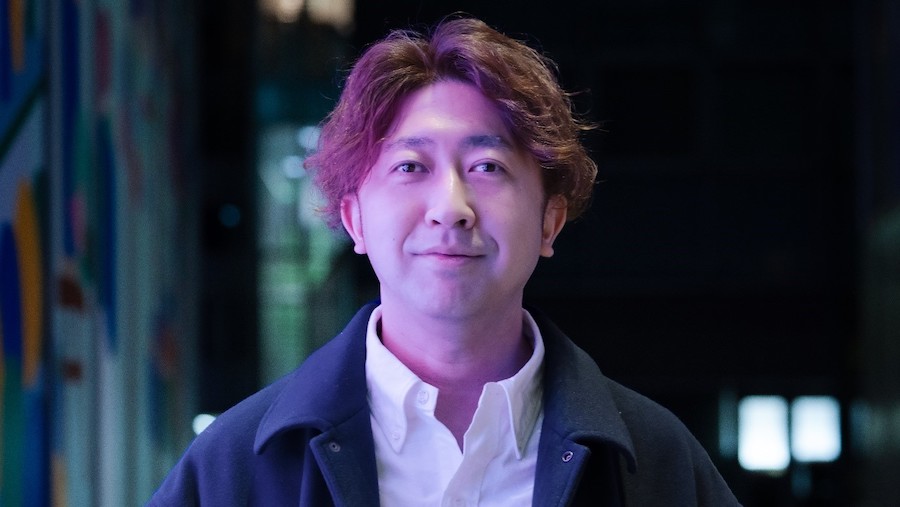
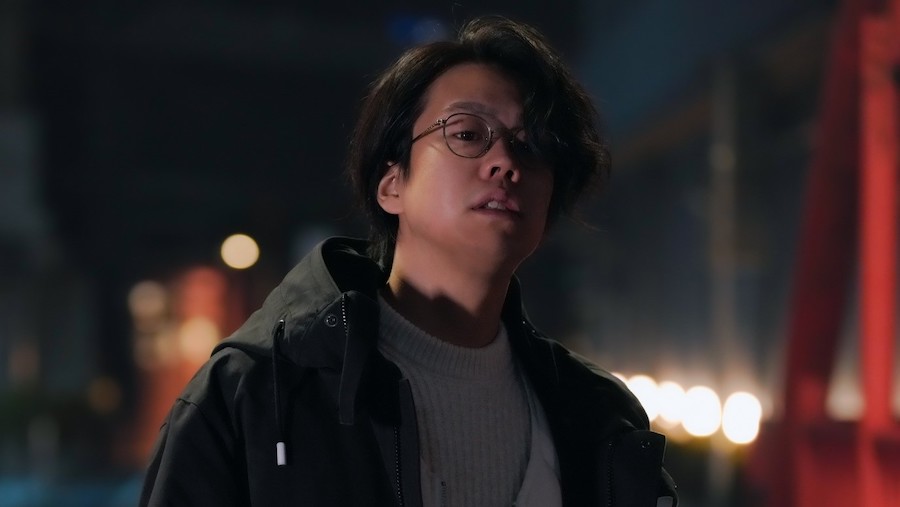
Taking on new challenges in China
── Please could you start by introducing yourselves and telling us a little about your backgrounds?
Ryosuke Yoshida: I’m a game director at Ouka Studios. I’ve been co-directing Visions of Mana, which is scheduled to be released by Square Enix. As for my career, after graduating from university, I worked at Capcom for around 13 years, developing mostly action games. Specifically, I worked on Devil May Cry 5, the Monster Hunter Generations series and the Sengoku Basara series among others. After that, I joined NetEase Games in 2020, and worked in Guangzhou for 3 years, returning to Japan to take up my current position in Ouka Studios’ Shibuya office (in Tokyo).
── So, you’re living in Japan now. I saw that many people responded with congratulatory messages on your X (formally Twitter) post announcing Visions of Mana.
Yoshida: I have many followers on X who have been cheering me on since my Capcom days working on Devil May Cry 5. It makes me happy when I receive positive responses from them.
── (To Ozawa) Next, please could you introduce yourself.
Kenji Ozawa: I’m Kenji Ozawa. I’m also working with Yoshida on directing Visions of Mana. I started out at Bandai Namco Entertainment, working as a producer for apps with wide target audiences like Mobile Suit Gundam, negotiating with the copyright holders and proposing marketing methods. About three years after entering the company, I was transferred to Bandai Namco Entertainment (Shanghai) Co. Ltd.
Sometime later, I decided that I wanted to make console games. I heard a new studio was being set up and thought it sounded interesting, so I joined NetEase Games around the time of Ouka Studios’ establishment. Unlike Yoshida, I live and work in Ghangzhou and I have been in China for six years in total.
── I heard you can speak some Chinese.
Ozawa: Yes, I’m familiar with Chinese. Even though I couldn’t understand the language when I first moved to China, I understood what I was being conveyed through work, so I was able to get by by having things interpreted into Japanese and keeping track of what word translated into what. However, when I joined Ouka Studios, there were many staff members who couldn’t speak Japanese at all, so I had to brush up on my Chinese.
── Why did you decide to go to China in the first place?
Ozawa: When I was a producer around 2017 to 2018, Chinese apps such as Onmyoji and Knives Out by NetEase Games were dominating the Japanese sales charts. Looking at this situation, I thought that I would definitely end up working overseas in the future, so I decided to take on the challenge myself and chose the Chinese game market. My prediction back then was right on the money, as today many Chinese developers are making not only apps but also console games. The fact that Ouka Studios was set up is also proof of this, and I believe that I did not make a mistake in jumping to the forefront of the Chinese game industry.
── Console game development is definitely increasing in China. Moving on, what were your reasons for going to China, Mr. Yoshida?
Yoshida: Capcom’s Battle Division had such a big talent pool of veterans that even if I set my sights on becoming a director, I felt like my turn might not come. So, I decided to try working at a game studio overseas. Another big reason is that I had always had a vague plan to one day live and work abroad (laughs).
But I was concerned that I would need an element of security were I to go abroad. Upon considering this balance between challenging myself and having a sense of stability, I chose Ouka Studios because the head (Tetsuya) Akatsuki is Japanese. The reason I returned to Japan is that the establishment of the Shibuya branch made it possible for me to continue my work here. As I moved with my family, I also made the decision based on my children’s education as well as the impact of Covid19.
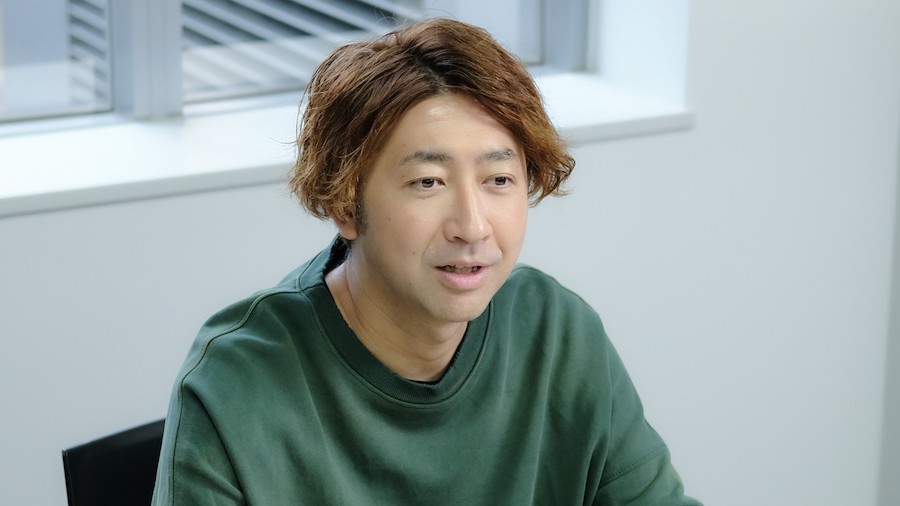
── It can be hard to describe in a few words, but could you tell me your strengths as creators?
Yoshida: It’s not a specific skill, but for me, I think it would be my experience as a battle planner, which started in my Capcom days working on critically acclaimed series like Monster Hunter and Devil May Cry. So, I guess I am recognized as a person who does battles. Also, very few Japanese developers have worked in China, so I think my unique strength is that through my experiences at Ouka Studios, I have become able to view Japanese game development from an objective standpoint.
Ozawa: For me, this was my first time developing a console game. However, I think it was thanks to my previous experience as a producer that when we were working out the scenario and event scenes with the publisher and internal developers, I was able to consider not only how interesting the content was but also how the player would perceive it.
── I see, your experience as a producer has informed your work as a director.
Inside a Japan x China Hybrid Studio
── Could you explain what makes Ouka Studios stand out?
Ozawa: The main thing about Ouka Studios is that it is a hybrid studio comprised of teams in Japan and China. As for Ouka Studios’ distinctive features, it employs a large number of creators who are adept with Unreal Engine, which enables smooth and speedy production of deliverables. Another feature is that we have both Chinese and Japanese speakers on our staff, which has enabled us to improve the accuracy with which we communicate the contents of each game to the users. For example, the title we are currently working on is being developed for worldwide release, and we have made a proposal for adjusting the nuances of the Simplified Chinese localization.
── As directors of Visions of Mana, what has your work involved?
Yoshida: In the early stages of development, I was directly writing battle plans and enemy specifications alongside my duties as a director, which involved coming up with battle concepts and game cycles and incorporating them into the project. During the mid-development stage, I worked on all aspects of the Visions of Mana project, such as making a detailed schedule to enable us to deliver the maximum level of quality with a limited number of staff. Now, we are in the final stage of development, so we are just playing the game, fixing bugs and improving the overall quality.
Ozawa: Yes, while Yoshida has been concentrating on the battles, I’ve been doing various other tasks from making maps and solidifying the story to communicating with the publisher. As well as being directors, we are both in management positions, so we regularly evaluate our staff and have discussions with them.
── How does working as a director at Ouka Studio differ from working as a director in Japan?
Yoshida: I got the strong impression that the game directors at my previous company mainly focused on direction, organizing their teams by giving them guidelines such as, “This is the direction in which we will take the game.” For example, specifications were written by the planning staff, while the battle planners implemented enemies and hit detection. Therefore, I think that directing Visions of Mana was an unusual way of working because I was involved in doing many of these tasks myself. It was a good experience, and I learned a lot.
── Was there a particular part of this varied work that you learned a lot from or that left a deep impression on you?
Yoshida: In terms of things that I can openly discuss, it would be making the schedule. I learned a lot through the process of deciding matters like how many enemies should be made by a certain date, and in what order and why.
Ozawa: The game and scenario were being developed side-by-side. However, there were many situations where only Yoshida or I knew some critical information pertaining to the project, and I regret that there were moments when cooperation stalled. Another concrete example is that in resolving problems, I gained more knowledge about aspects such as event scripting and sequence data. My understanding of game development has deepened beyond the initial image I had of directing.
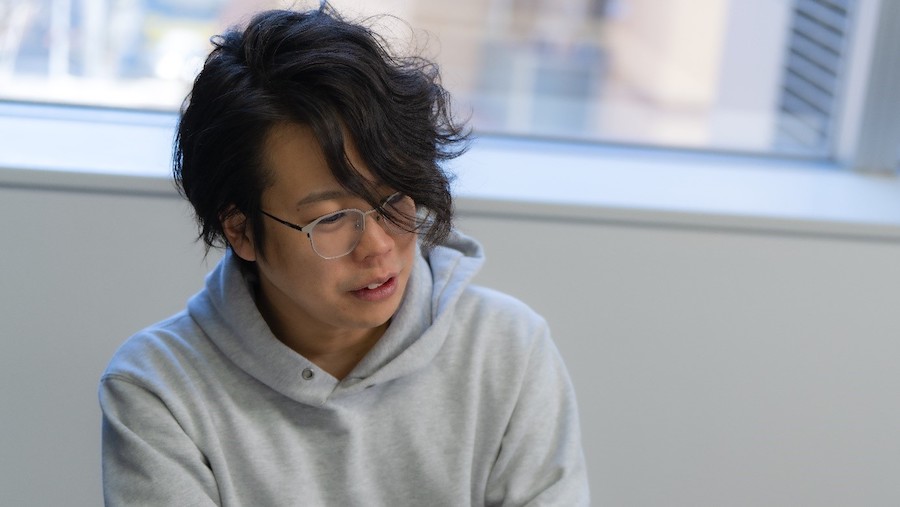
── I’m curious as to how you communicate when working at a hybrid studio. Mr. Ozawa said that he can speak Chinese, but how about you, Mr. Yoshida?
Yoshida: I lived in Guangzhou for 3 years, so I can order in Chinese at a restaurant, however, I don’t use it for work (laughs). I have an interpreter at work, but it wastes time if I ask them to translate all my instructions. It may sound cold, but I try to make sure that the work can be carried out without staff having to talk to me wherever possible.
── In what way?
Yoshida: For example, with any kind of work like adjusting systems or writing specifications, we first show the staff an example model so they can imitate how to do it. It is easier to get the message across if you let people look at and interact with a sample version than by saying, “do this or do that.”
── That sounds almost ideal, but it still must be difficult for you in terms of communication. Have you ever thought that it would be faster just to learn Chinese?
Ozawa: (to Yoshida) What do you think? (laughs)
Yoshida: It’s difficult to learn a new language, so I still had to rely on interpreters in case I made a mistake. Apart from casual chit-chat, I am not familiar with Chinese. I decided not to use Chinese at work because it wouldn’t be good if the nuances of what I wanted to say were misunderstood.
── It’s true that language differences can result in inappropriate words being used unintentionally.
Ozawa: There are also issues with nuance that stem from cultural differences. I speak Chinese, but as a director, I have to be careful when pushing back on ideas or deliverables. I struggled to properly convey the tone of “It’s not quite there yet” or “It’s almost there but…” linguistically. The solution is to express it in figures whenever possible; “90% of it is ok, let’s work hard on the remaining 10%,” instead of using vague sentences. Gestures are very helpful too (laughs).
── It’s easy to understand if you communicate through numbers.
Ozawa: Also, when I ask someone to fix something that can’t be immediately incorporated into the game, I don’t just tell them what to correct but make sure to tell them in my own words why it needs to be fixed. In game development, it’s inevitable that you sometimes have to give feedback that goes against the creator’s intentions, however I am always conscious of conveying this in a way that is easy to get across.
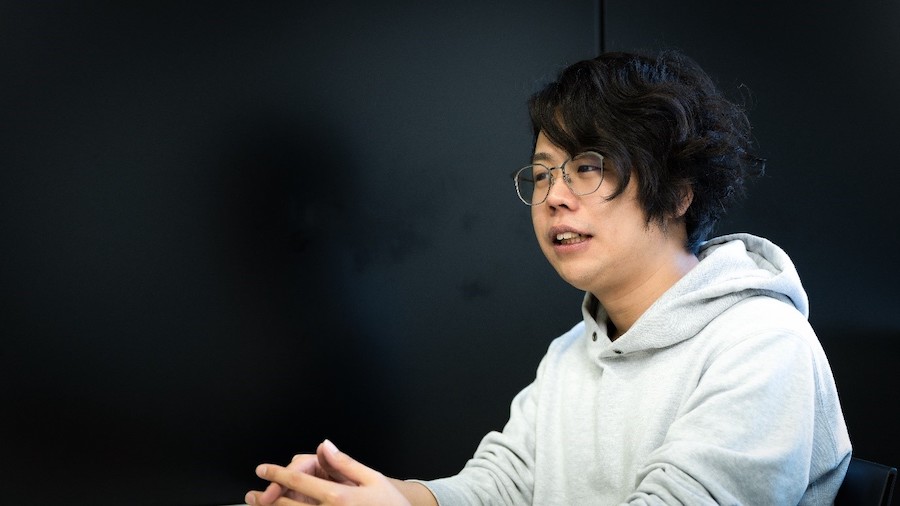
── I’m curious as to whether or not the language barrier between the director and the team resulted in any major problems.
Yoshida: I can say I did OK in this respect. Ouka Studios has an anonymous survey system through which employees rate how satisfied they are with their supervisors. Fortunately, I seem to have scored well, so I think they trust me to some extent. NetEase Games is a high-level Chinese company with extremely smart employees, so if you are all talk and no action, they will see right through you. How much value they see in working with me is important- we don’t just evaluate our subordinates but are evaluated by them at the same time.
── You mean that trust comes from working closely together. It seems if you had tried to solve issues with words alone, it might not have worked out.
Ozawa: I should add that Yoshida takes the initiative in planning out milestones. He’s often the one who says, “I’m glad we worked so hard to get to this point” at the right time.
Yoshida: I guess so. Whenever I hear praise from the publisher or my boss, I try to double it when I pass it on to my staff (laughs).
── I bet they are happy to hear that.
Games are made differently in China compared to Japan
── Next, could you tell us about the differences you noticed between making a game in China and making a game in Japan?
Yoshida: In Japanese game companies, the project plan has to be clearly put in writing and approved before you can start working on the game. However, in China, I noticed a significant tendency towards a hands-on approach of producing deliverables and making quick decisions while presenting it in writing. With the current project (Visions of Mana), we were able to outline it to the publisher and have them interact with a mock-up at an early stage, allowing us to share the project’s direction. I don’t think this speedy approach would have been possible at a Japanese developer.
Ozawa: In Guangzhou, creators tend to be more divided into sections depending on their specialization, with those in charge of battle specializing in battles and those in charge of systems specializing in systems. Therefore, people are more confident about giving opinions on their specialization to their bosses, even if their boss is a Japanese game industry veteran. As Yoshida just said, a big distinction is the speed that comes from each person being highly specialized. On the other hand, they were inexperienced in cross-sectional implementation, so the experienced staff in Shibuya sometimes had to make up for shortfalls in quality.
── So, you were able to guarantee both speed and quality by jointly developing a game between Japan and China.
Ozawa: That’s right. When producing a game, there are aspects that need to be fine-tuned after the game has taken shape- like the feel of the battles. Then there are aspects like risks related to the overall game system, which need to be dealt with before the game takes shape. Ouka Studios’ way of developing games is based on an understanding of the strengths and weaknesses of both Japanese and Chinese ways of working, and combines the best of both worlds.
Yoshida: The speed at which you can get to work on shaping the game is truly the biggest advantage.
── Indeed, I get the impression that Chinese game creators, not only programmers, but game planners and designers, have the skills to proactively start working and shape the game.
Yoshida: I can’t say for sure what other Chinese game developers are like as I haven’t seen their workplaces, but at Ouka Studio, almost everyone has the skills required to work on a game independently.
── I imagine that’s the kind of work environment where the team members can quickly bring deliverables to Mr. Yoshida when he comes up with a project specification.
Yoshida: Basically, yes. There are some cases where we have to rely on the engineers though, so it doesn’t always apply, but even so, the speed with which we can consult with the engineers to shape the project is fantastic.
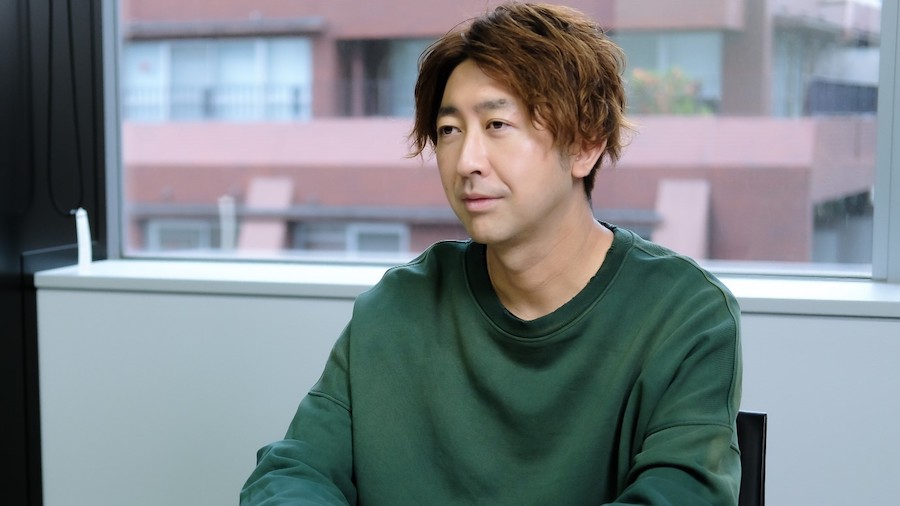
── That’s something to be proud of. I would like to hear about any other things that could only happen at a JapanxChina hybrid studio.
Ozawa: In terms of artistic elements, I think Chinese creators are different to Japanese creators in a good way. There were proposals approved by the publisher that Yoshida and I hadn’t thought up. On the other hand, the project we are working on is a Japanese game, so it took time to convey our ideas about the direction of the event scenes that have an overt Japanese flavor to them. However, the team persevered with it until they understood, so I look forward to seeing the growth that resulted from this experience when we work on a new Japanese title.
── It sounds like you were able to collaborate smoothly with the publisher. Will you continue to use this Japan-China hybrid system on future game projects?
Ozawa: The majority of the projects that we are working on involve staff from both the Japanese and Chinese sides. I think that we will enter a new phrase in which the Chinese staff will demonstrate their own strengths and what they have learned so far, so as not to be outdone by Japanese game industry veterans.
Yoshida: I think this will happen too. Please continue to keep an eye out for Ouka Studios.
── We look forward to seeing Ouka Studios’ future projects. Thank you for your time.
[Writer, Editor: Yuuki Inoue]
[Interviewer, Editor: Ayuo Kawase]
[Translator: Verity Townsend]
[Translation Editor: Amber V]
The original Japanese interview can be found via Automaton Japan.

